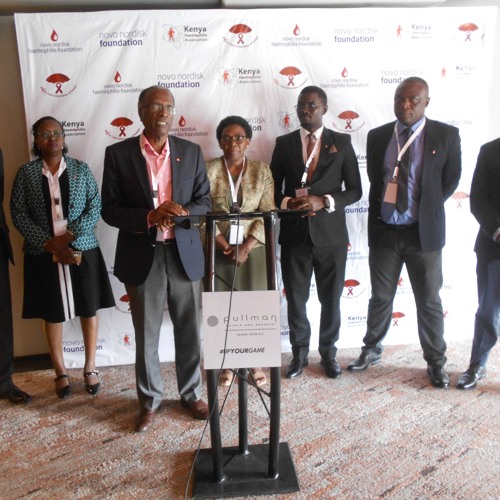- The 254 Report
- Posts
- East Africa Blood Disorders Leadership Forum Towards Enhanced Diagnosis and Care for Persons with Blood Disorders in East Africa
East Africa Blood Disorders Leadership Forum Towards Enhanced Diagnosis and Care for Persons with Blood Disorders in East Africa
The East Africa Blood Disorders Leadership Forum, held in Nairobi, Kenya, on October 28-29, 2024, brought together key stakeholders, including health professionals, government officials, advocacy groups, and representatives from regional organizations. The forum focused on raising awareness, improving diagnosis, and enhancing care for individuals affected by blood disorders across East Africa.
Key Discussion Points
The forum addressed the following key topics and challenges related to blood disorders in East Africa:
Community Awareness and Stigma Reduction
The need for increased community awareness and destigmatization was highlighted, noting that many East African communities often associate blood disorders with traditional beliefs. Conditions like haemophilia and sickle cell disease are misunderstood, resulting in stigma. Speakers emphasized educational campaigns to help communities understand these are treatable conditions.
Diagnostic Challenges
Many East African hospitals lack the equipment and knowledge needed to diagnose blood disorders accurately, leading to frequent misdiagnoses. The forum called for greater diagnostic infrastructure and training for healthcare providers to better identify and manage these conditions.
Governmental and Legislative Support
Speakers from the East African Legislative Assembly discussed the importance of governmental commitment and policy support for blood disorder care. The assembly urged governments to allocate budgetary support for blood disorders, citing Rwanda as an example of successful government involvement.
Regional Collaboration
Regional representatives highlighted the value of cross-border collaboration to share best practices and resources, reducing duplication of efforts. For example, Tanzania shared effective practices that could be replicated across the region.
Community Health Promoters’ Role
Community health promoters were identified as crucial for raising awareness and detecting symptoms early in communities, especially in underserved areas. The forum proposed training these promoters to recognize symptoms of blood disorders and guide families toward healthcare facilities.
Engagement with Academia
Academic and research institutions were encouraged to support blood disorder initiatives by conducting research, enhancing data collection, and disseminating information to inform public health policies and improve community knowledge.
Support from International Organizations
The Novo Nordisk Haemophilia Foundation was a key partner, demonstrating the importance of international collaboration. The Foundation, expressed optimism that the forum could serve as a model for similar initiatives in other regions.
Notable Speakers and Contributions
Chair to the Board, Kenya Haemophilia Association (KHA)
The Chair delivered opening remarks emphasizing the need for greater awareness and clinical support for blood disorders in East Africa. They highlighted the widespread stigmatization of these conditions within communities and called for robust community education and clinical support structures.
Hematologist from South Africa
Represented the Novo Nordisk Haemophilia Foundation, stressing the importance of regional partnerships. The Foundation underscored the Foundation’s commitment to supporting regional initiatives and raising awareness around blood disorders.
Representative from the East African Legislative Assembly (EALA)
Discussed EALA's role in advocating for policies that support healthcare for blood disorders, encouraging policy harmonization across East Africa and budgetary allocations from national governments.
Clinician from Tanzania
Shared Tanzania’s successful practices in blood disorder management, calling for collaboration across East Africa to reduce duplication and enhance patient outcomes.
Kenya Ministry of Health Representative
Spoke on policy development to integrate blood disorders into the NCD strategic plan, calling for further collaboration across the region to standardize care protocols.
Alliance of Tanzania Representative
Called for harmonized policies across East Africa to manage the economic and health impacts of blood disorders and ensure continuous government support.
Physician from Uganda
Provided clinical insights into the health impacts of untreated blood disorders, highlighting the need for early diagnosis and preventative care.
Outcomes and Recommendations
• Establish standardized guidelines and protocols for blood disorder care across East Africa.
• Encourage national governments to allocate specific budgets for blood disorder support, covering diagnostics, treatment, and community outreach.
• Implement ongoing awareness campaigns to reduce stigma and promote early intervention in blood disorder cases.
• Develop a cross-border training framework for healthcare providers, equipping them with necessary skills for blood disorder management.
• Enhance academic partnerships for research and data dissemination to inform policy and public health efforts.

Reply